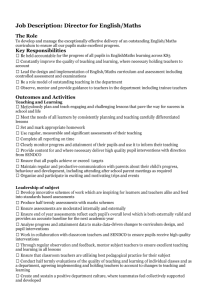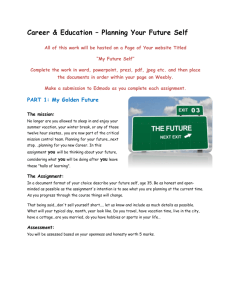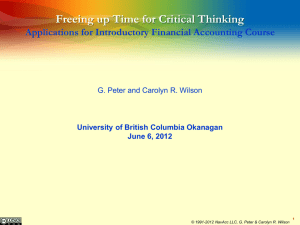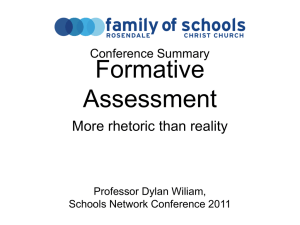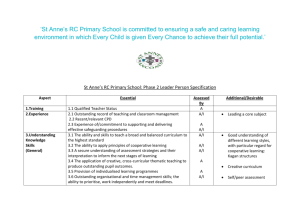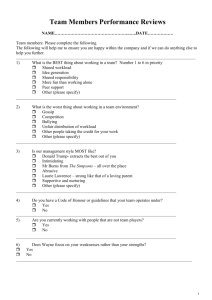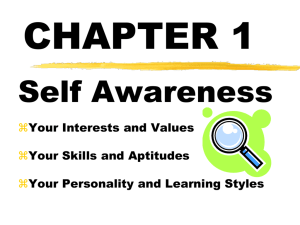Teaching and Learning Policy
advertisement
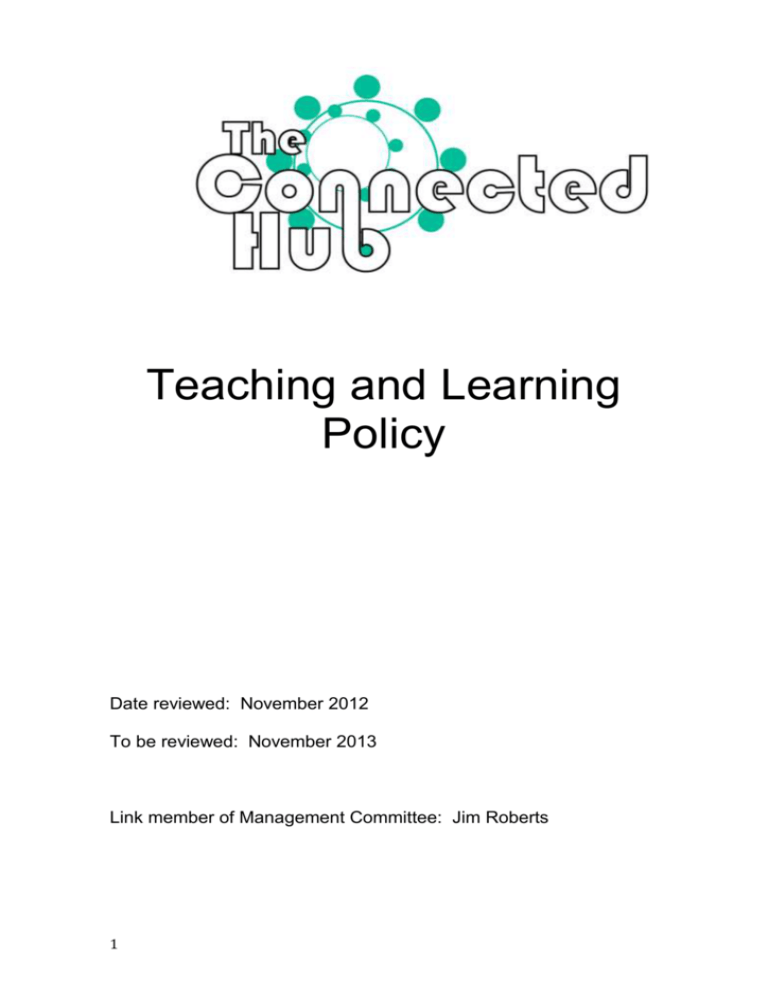
Teaching and Learning Policy Date reviewed: November 2012 To be reviewed: November 2013 Link member of Management Committee: Jim Roberts 1 We are aiming for Outstanding Teaching and Learning We acknowledge that we may not always reach outstanding but this is what are striving for We aim to provide a different kind of learning for students through a mixture of small group study, vocational learning, mentoring and enrichment activities. We know that we must work hard to re-engage students many of whom have missed out on much of their education for a variety of reasons. Our curriculum is personalised and we have high expectations of students This teaching and learning policy outlines how we work and organise ourselves to ensure that provision in our school meets the Ofsted criteria for good or outstanding. This is monitored through our ‘hexagonal approach’ (from September 2013). Our whole school approach: consistency and high expectations We believe that students learn best when there is consistency and continuity in our approach. We hold common expectations of our practice and through mutual challenge and support we ensure that it is of a consistently high quality. We expect each teacher to take a full and determined responsibility for the progress of all of the students in their groups. We expect teachers to have consistently high expectations of all students in all areas of their learning and school-life. The purpose of our teaching and learning: pupil progress We teach for progress. This means that we work to ensure that all students are improving skills, knowledge and understanding across all lessons and activities. We recognise the need for consolidation and practice, but we are vigilant in our avoidance of tasks that involve unnecessary repetition or low levels of challenge. We recognize that we have only a short period of time in which to make a difference and narrow the gap. We are taking on the challenge and responsibility of preparing students not only for their examinations but also for their next steps at 16+. Six core elements of our provision 1. Subject knowledge We believe that students learn best when teachers are well-informed, knowledgeable and confident about what they are teaching. Our curriculum planning, our CPD programme and our staffing patterns ensure that all learning is led by staff with excellent subject knowledge. 2. Planning Our planning is based on systematic and accurate assessment of our students’ prior learning. There are times when the information we have from our connected schools is not accurate but we are working hard to make our own 2 baseline assessments informative and accurate. We plan teaching strategies carefully, creatively and imaginatively, based on our knowledge of our students’ needs. We choose, design and adapt tasks that will challenge all students, whatever the level at which they are working. 3. Interventions We plan interventions that will support students and will move them on in their learning. These are determined by our accurate knowledge of students’ previous learning and the barriers to progress and by our high expectations of their progress. We know the impact that we expect these interventions to have and we evaluate them with regard to the difference they have made to students’ learning. 4. Homework/home study We recognize the importance of students learning at home. We believe it helps them to consolidate and extend school learning as well as helping to involve families. We have a flexible approach to this depending upon the situation of each student. Each student has the opportunity for extending their studies at home through revision books, Maths Doctor and reading tasks. 5. Assessment for Learning We use a range of techniques to systematically check our students’ understanding throughout each stage of the lesson. We anticipate the most likely areas of misunderstanding and we prepare planned interventions and support that will address these. However, we are also ready to adapt our approach spontaneously when we meet unexpected misconceptions or difficulties. 6. Marking and feedback We assess progress regularly. We discuss assessments with pupils so that they know how well they have done and what they need to do to improve. We give ongoing oral feedback to individuals and to groups of students throughout lessons. Our feedback is more often positive than negative. It is sharply focused on the learning and aptitudes that we want to improve. The purpose of all our feedback, in marking, in target-setting and orally, is to give students precise and motivating information about how well they are doing and what they should do next to improve. (See Marking and Feedback Policy). Outcomes: basic skills, classroom climate, pupil attitudes Basic skills We recognize the centrality to learning of the core basic skills. We have organised our teaching programmes for reading, writing, communication and maths so that there are clear lines of progression; consistent teaching approaches; high expectations of students at every stage and a rigorous assessment of students’ learning and progress. We design our whole curriculum to afford every opportunity for students to apply and so consolidate these core basic skills. Our expectations of their crosscurricular work are as high as those we hold in subject-specific lessons. 3 We use time very carefully, minimising waste and taking every opportunity to practise and reinforce core basic skills. Classroom climate Through careful and imaginative planning; our high-quality teaching; good relationships and our high levels of teacher responsibility, we aim to generate high levels of enthusiasm from our students. We expect students to be active participants in their learning and we structure routines and rewards to support them. We want our students to show commitment to their learning. We give positive feedback when we see examples of this and we take measured and thoughtful action when it is absent. Pupil attitudes We are developing the aptitudes of resilience, confidence and independence. We ensure that the tasks we choose give regular opportunities for students to develop these aptitudes. We explain their importance to learning. We notice and comment positively when students demonstrate these aptitudes and we model them in our own actions. We work with individual students to build these aptitudes where they are lacking. RWCM These skills are an integral part of all subjects and planning (see separate policy). 4
